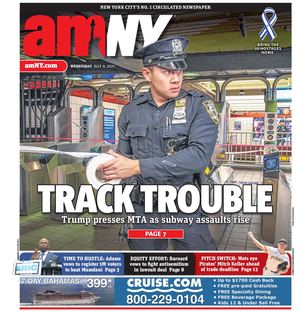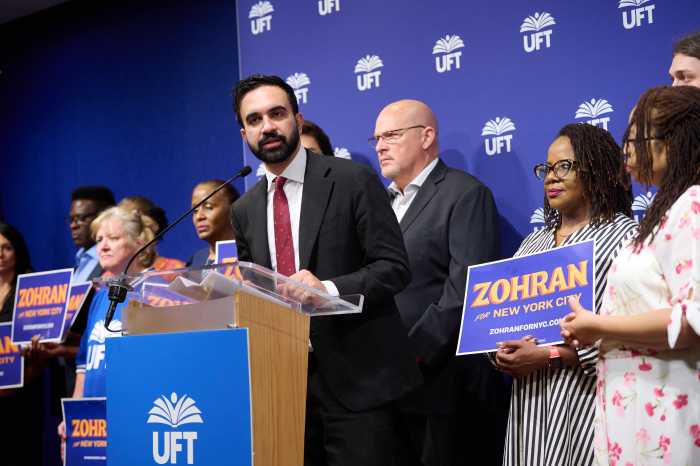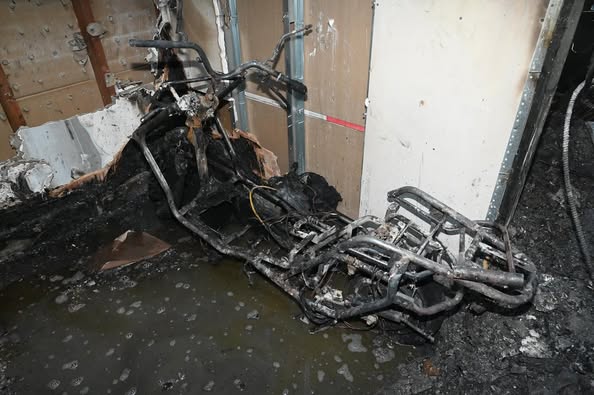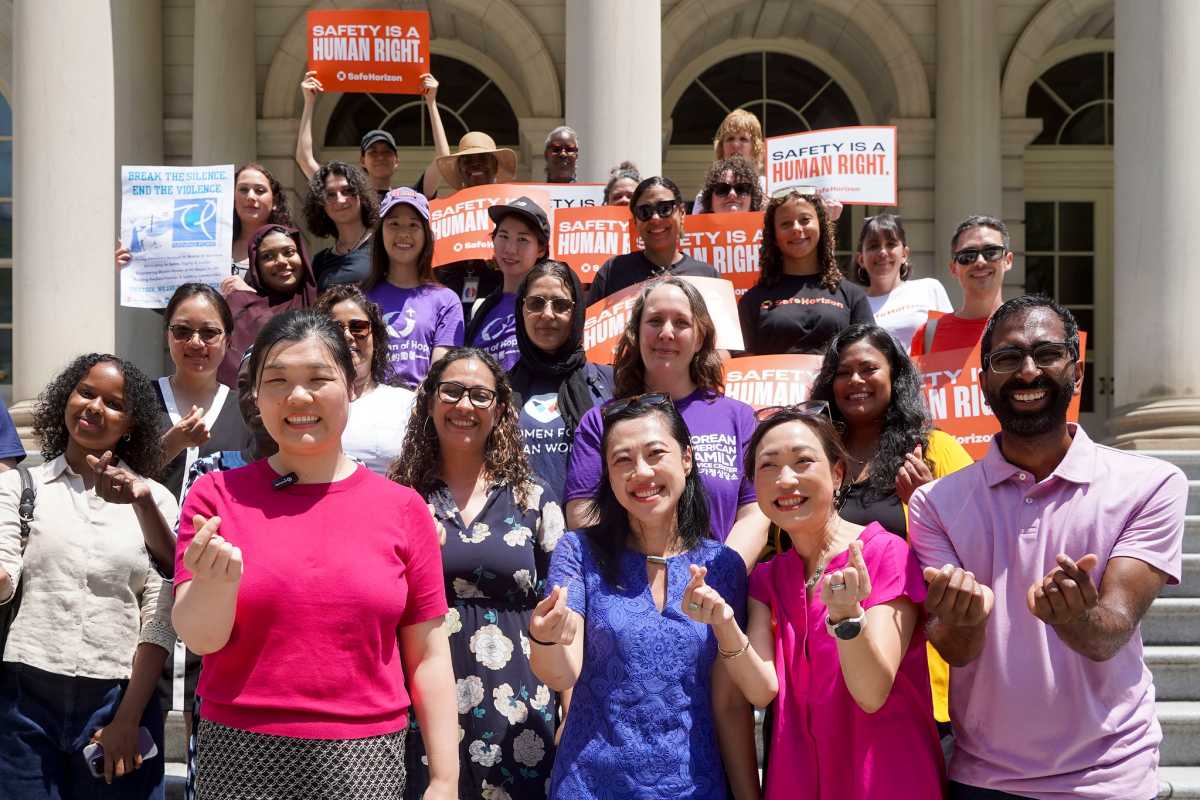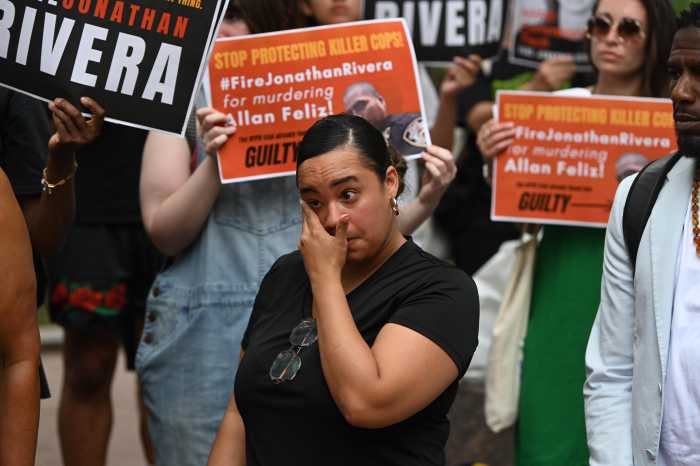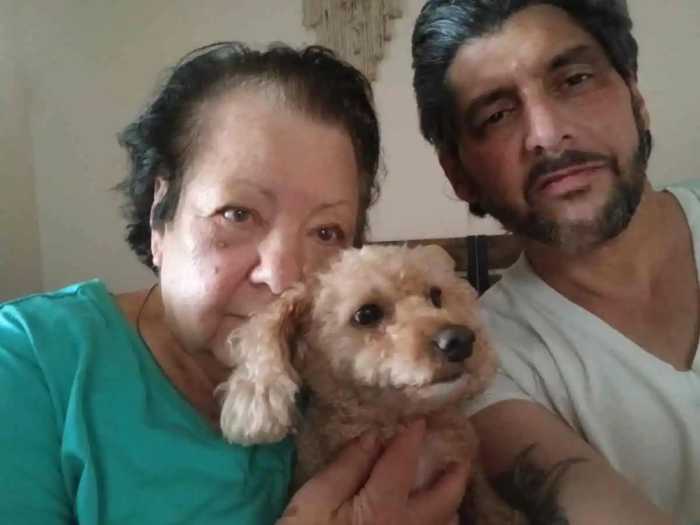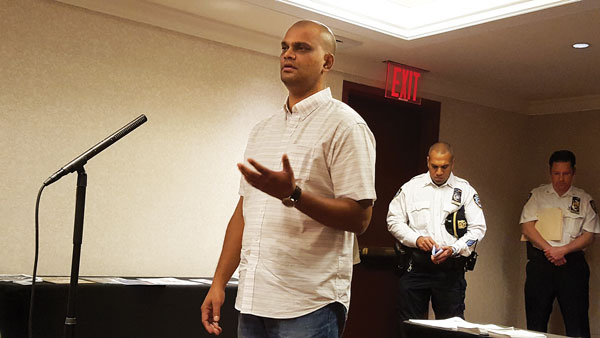
BY DUSICA SUE MALESEVIC | “I was homeless,” Delon Ali told the crowd. “I know what it feels like to be rejected, to be cast out. I know what it feels like to be hopeless. I know what it feels like when you don’t shower for three months. I know what it feels like to be a dead man walking, if you will.”
Ali shared his story at the Oct. 20 meeting of the Midtown South Community Council (MSCC), held at The New Yorker hotel (481 Eighth Ave., btw. W. 34th & W. 35th Sts.). He explained how he moved from Trinidad to New York City 20 years ago, and how he fell on hard times 10 years ago after losing his job and turning to drugs.
“In the winter, I would ride the F train from Queens to Coney Island, back and forth,” he said. “I would sleep in abandoned buildings. I would get locked up in prison all the time.”
Ali added, “Ten years ago, I walk into a room and see a bunch of cops, I would make a U-turn and run out.”
Indeed, this got a few murmurs as the MSCC meeting was filled with police officers from the Midtown South Precinct. Each precinct has a community council whose meetings bring residents and cops together to discuss problems and issues in the area. Homelessness has persisted on and off for decades in the area, said John A. Mudd, president of the MSCC.
Mudd is committed to tackling the complicated problem, and had invited Ali to the meeting to share his experience and insight.
Today, Ali is a pastor who has both an associate and bachelor’s degrees in bible science and theology, and is planning to attend the New York Theological Seminary in January, he said. He also manages the 21-day shelter program at The Bowery Mission (bowery.org). The mission, at 227 Bowery (btw. Prince & Rivington Sts.), serves anywhere from 700 to a 1,000 plates of food per day, every day, according to Ali. It also provides clothing, shelter and a place for people to shower, he said.
“I have seen people come in off the parks, off the benches,” said Ali. “I have seen the process. I have seen their life change. I’ve seen them go back to independent living. I’ve seen them go back to their families. I’ve seen them getting jobs. It encourages me.”
In a phone interview two days later, Mudd explained to Chelsea Now how he is trying to connect the various organizations — like The Bowery Mission — and city agencies to form a network to help the homeless. Improving communication citywide is part of that, Mudd said.
“I think we need to be on a wider net — we need to have all our bases covered,” he said.
Mudd has lived on W. 38th St. (btw. Eighth & Ninth Aves.) since 1984 and has been part of the council for 29 years. “This has been on my agenda for a long time,” he said.
Earlier this year, he started calling agencies, talking to people about homelessness and researching the issue. The council receives many complaints about homeless people, including when LinkNYC rolled out its kiosks along Eighth Ave. Mudd and others pushed for LinkNYC to disable the web browsing on the kiosks, as residents and businesses said the homeless gathered around the terminals and monopolized them for hours.
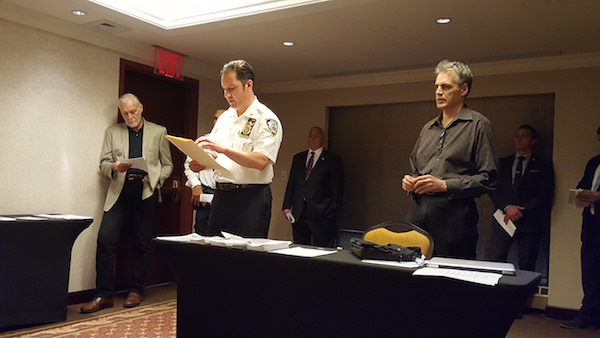
Mudd has been going out and interviewing those who are homeless — there is an encampment on his block, he said. The day after the council meeting, Mudd, with a rep from Urban Pathways, went to the encampment (Urban Pathways, at 575 Eighth Ave., btw. W. 38th & W. 39th Sts., is a nonprofit offering a myriad of services for the homeless; urbanpathways.org).
He talked with the people there, asking them their thoughts about the city’s shelters, and why they may not want to go to one. According to Mudd, one woman told him she was desperate for a something permanent.
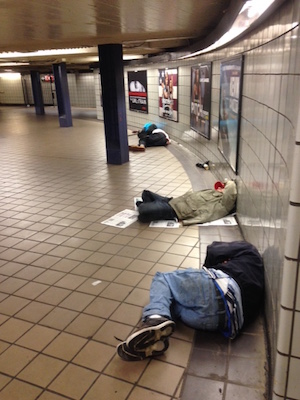
“They all have their own reasons for being out there,” Mudd said.
He said that he thinks the problem is solvable, adding that homelessness is “really unacceptable as a society. If we can’t resolve this, something is really wrong.”
After the MSCC meeting the commanding officer of the Midtown South Precinct, Inspector Russell Green, told Chelsea Now that the number one complaint his station gets is about the homeless. The precinct also gets complaints about drug sales and usage in the area, Green said during the meeting.
With the holiday season approaching, Green said that people should watch and secure their belongings. Seventy-five percent of all crime for the precinct is grand larcenies, which means a theft of over a $1,000 or something involving a credit card, Green explained.
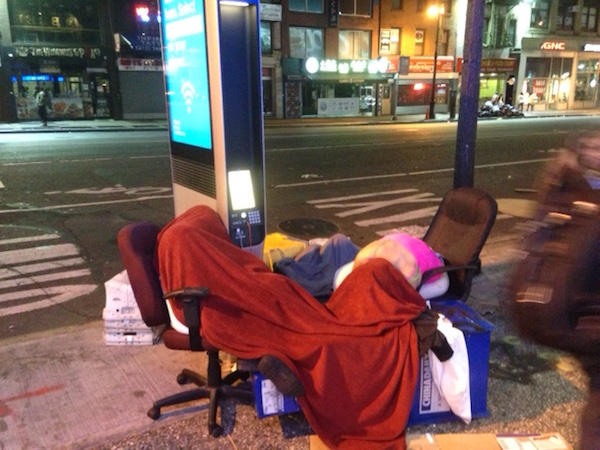
Theft happens near and around popular tourist spots, such as Macy’s and Times Square, and many people have gotten their computers, purses and wallets swiped, Green said.
“It’s huge and unfortunately a lot of people are not aware of it,” Green told Chelsea Now. “They are trusting.”
Near the end of the MSCC meeting, Mahari Simmonds, a volunteer organizer with Reading Partners, spoke about the organization’s program, which brings volunteers into schools where children are struggling with reading.
Simmonds said Reading Partners works with 19 schools and is looking for 1,447 volunteers. In New York City, about 28% of children are not reading at grade level, and that number jumps to 80% when looking at children from lower income neighborhoods, according to Simmonds.
Mudd went to a seminar they hosted, and said later in the phone interview that the council wants to partner with the organization, as it is “one of the programs we think would be a terrific thing to do.”
For more information about the Midtown South Community Council, visit midtownsouthcc.org.
